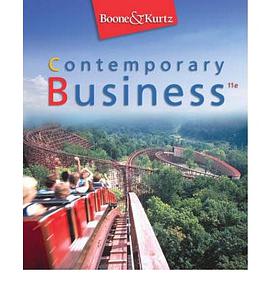

具体描述
WHAT ARE ANNUALS<br > AND PERENNIALS?<br >"Anmtal," perennial," and "biennial" all bare fair{y ,qratgh.~oru ard<br >botanical cl~n#ions. In garden#Tg usage, /hough, the ca/egoJ3 lines can<br >become someu,hat blun ed For evample, some plants a bomnis! wouM caA<br >egorize as pemmials can be grou,n most successfully as annuals.<br >AN N UALS<br >Bocanically, an annual is a plant that completes its life cycle in a year or less. In the<br >course of a single growing season, the seed germinates and the plant grows, blooms,<br >goes to seed, and dies. Because the), must complete their life cycle in such a short time,<br >annuals grow and bh)om qtdckly in their rush to set seed, bringing their joyous color to<br >the garden in only a few months from sowing. They are reliable bloomers: if spent blos-<br >soms are removed, most kinds flower for a long period, persisting in their quest to pro-<br >duce seed.<br > Depending on the varieties you choose, annuals can decorate your garden for<br >much of the yea1: Cool-season types (calendula and viola, for example) prosper in cool<br >soils mid mild temperatures--from fall through spring in mild-winter climates, from<br >early to late spring elsewhere. Following the cool-season show are waxm-season an-<br >nuals such as cosmos and zinnia, which are typically planted ,after the year s last frost<br >mid, in most climates, bloom generously throughout summer and fall.<br >PERENNIALS<br >hi botanical terms, perennials are nonwoody plants that~ ~ i<br >live for more than 2 years. Unlike annuals, they return<br >replanth~g--though many grow at a somewhat P .~" -"<br >rekc<ed pace and may require a season or two to ~: ~7 ~" :<br >settle in and reach their full potential.<br > Among perennials, you ll find plant,; with vari-<br >oils growth habits. Some, such as hosta and peon},<br >(l aeonia), die down to the grotmd at the end of<br >each growing season, then reappear at the start of die<br >next; these are ()hen referred to as "herbaceous"<br >plants. Others, including Shasta daisy (Cbo,santhenutm l ,.~evnia<br >ntaxinlttm) mid cored bells (lteltcbera), go tlirougb win- Festi~a~.la_xima <br >ter as low tufts of leaves, ready to grow when spring arrives. A<br >third i)1~e of perennial is truly evergreen, with h}llage that pm~.ists ~dmost unchanged<br >througllotu the winter months. New Zealand flax (Pho*wthlm), some daylilies (ltenw-<br >rocallis), and perennial pinks (Diantbus) are fanliliar exanlples.<br > A few plants, though technically perennials, Iuay be growu as anntr, ds. Example5<br >include certain tender pkmts (those tliat cannot SUlM ,e freezing temperatures) such as<br >common gerauium (l e&tL, onium), fibrous begopda, marguerite (Cbo,santbemnm<br >
作者简介
目录信息
读后感
评分
评分
评分
评分
用户评价
我买下这本《Annuals and Perennials》完全是个美丽的意外。我把它放在床头,期待着能在睡前读几页关于植物养护的实用技巧,毕竟书名给人的暗示太强烈了。结果,这本书是一部关于古代美索不达米亚星象学与苏美尔泥板文献的深度考据。它的语言风格非常学术化,充满了古老的亚述语和阿卡德语的专有名词,即便是配有的脚注也需要读者具备相当的古代近东历史知识才能理解。作者的核心论点是,现今我们所熟知的黄道十二宫系统,其最初的“模板”可能并非源自希腊或巴比伦的后期修正,而是根植于一个更早、更隐秘的、与尼普尔城神庙祭司阶层相关的复杂历法模型中。书中有一个章节,逐字逐句地解读了一块被认为已经失传的、记录了“红色彗星回归周期”的泥板拓片,并将其与后世的王朝更迭进行了惊人的对照分析。这种对遥远文明的深挖,将我从轻松的园艺幻想中猛地拉入了数千年前的干燥平原。阅读时我感到一种巨大的时间错位感,那种探寻被时间掩埋的知识的兴奋,完全盖过了我对植物生长的兴趣。这真是一部非凡的、令人汗颜的硬核历史著作。
评分这本书的装帧非常精美,封面采用了手工装裱的帆布,手感沉甸甸的,让人感觉它应该是一本珍贵的艺术画册或者限量版的文学经典。然而,当我打开它时,我发现这是一本关于二十世纪七十年代日本电子音乐实验的口述历史。全书几乎没有作者的主观评论,而是由数十位先锋音乐家、录音工程师和电子元件制造商的访谈记录构成。这些访谈的口吻极其口语化,充斥着大量的技术行话,比如“电压控制振荡器(VCO)的漂移问题”、“磁带循环回路的非线性反馈”等等。作者的任务就是将这些非正式的、充满专业术语的对话,按时间线索串联起来,展示从“噪音”到“音乐”的理论边界是如何被不断拓宽的。我尤其喜欢其中关于一位京都老教授如何将传统尺八的演奏技法与早期的模拟合成器结合起来的段落,那种东西方、传统与未来技术碰撞出的火花,通过文字被描绘得淋漓尽致。这本书的魅力在于其真实性,它记录的不是光辉的艺术成就,而是那些在简陋工作室里,被技术难题折磨得筋疲力尽的创造者的原始声音。对于一个对声音美学有兴趣的人来说,这比任何官方音乐史都要来得生动和震撼。
评分这本书的书名是《Annuals and Perennials》,我以一个读者的身份来写五段对它不包含该书内容的评价。 这部厚厚的精装本摆在我的书架上,占据了相当可观的空间,它的封面设计简洁到近乎朴素,只有一行深灰色的衬线字体,没有任何花卉插图或者鲜艳的色彩,这让我最初对它的内容产生了极大的困惑。我原本期待的是一本关于园艺、植物学分类或是英国乡村生活随笔的读物,也许是某个失传已久的植物学家的手稿汇编。然而,翻开第一页,我发现自己完全踏入了一个截然不同的领域——这是一部探讨十九世纪末欧洲金融市场泡沫破裂的史诗性著作。作者以极其详尽的笔触,描绘了从巴黎的铁路债券热潮到维也纳证券交易所的崩溃,每一个经济周期都被拆解得如同精密的钟表结构。其中对于“投机者的心理画像”那一章,简直是文学与经济学的完美结合,它没有枯燥的数据堆砌,而是通过大量的私人信件和日记摘录,展现了那个时代人们在贪婪与恐惧之间摇摆的众生相。特别是关于“黑天鹅事件”的早期原型——1893年的一次突发性棉花期货崩盘,书中引用的法文和德文资料翻译得精准到位,让人仿佛身临其境地感受着那种瞬间财富化为乌有的绝望感。阅读过程中,我多次需要停下来,查阅历史背景资料,因为它对那个时代复杂的跨国金融工具的描述,即便是受过良好教育的读者也需要专注才能完全理解。这本书与其说是一本历史书,不如说是一部关于人性弱点的寓言,只是它的背景恰好设定在了那个充满蒸汽与钢铁的“美好年代”。
评分拿到这本书时,我正在为一场国际象棋锦标赛做准备,我原本以为它会是某个顶尖棋手的传记,或者至少是关于某个著名残局的深入分析。然而,这本书的内容令我哭笑不得。它实际上是一份详尽到令人发指的、关于二十世纪中叶北欧地区室内装潢风格演变的档案汇编。全书的核心围绕着丹麦和瑞典在战后对功能主义和极简主义美学的追求。它不是一本审美指南,而是一份严谨的社会学田野调查报告。作者花费了巨大的篇幅,分析了特定年代的沙发靠垫材料的纤维构成如何反映了当时的社会阶层流动性,以及厨房橱柜的把手形状与国家福利政策调整之间的微妙关联。书中插图极其丰富,但都不是艺术照,而是黑白的技术图纸,详细标注了螺丝的型号、木材的密度和油漆的色号。我记得有一章专门探讨了“如何用最少的资源创造最大的心理舒适感”,里面竟然详细对比了三种不同型号的瑞典产毛线织物在吸收室内湿气方面的差异。这与我期望的棋局谋略相去十万八千里,但我却被那种近乎偏执的细节考据所吸引。它让我意识到,任何一个看似平凡的日常物品背后,都可能隐藏着深刻的文化密码和经济逻辑。
评分我是在一个阴雨连绵的周末,为了打发无聊的时间而随手拿起这本《Annuals and Perennials》的,老实说,我对它的期望值非常低,毕竟名字听起来像是那种只能在园艺店打折区找到的指南。谁能想到,它竟然是一部结构极其晦涩、哲学思辨极其深刻的后现代主义小说。这本书完全摒弃了传统叙事线索,全书由大约一百个互不关联的短篇“片段”组成,每个片段的长度从一句话到三页不等,主题跨越了存在主义的焦虑、符号学的解构,乃至对“时间”这一概念本身的质疑。最令人抓狂的是,作者使用了大量的自创词汇和复杂的句式结构,比如一个长句可以连续使用七个从句,中间还夹杂着拉丁文的哲学术语。我不得不承认,很多段落我读了三遍以上,依然无法确定作者究竟想表达的是肯定、否定还是纯粹的戏谑。它更像是一场智力游戏,而不是一次轻松的阅读体验。然而,正是这种挑战性,让我产生了难以言喻的迷恋。在第三部分,关于一个“永远无法到达的房间”的描写,作者用到了大量关于空间几何学的比喻,读到后半段,我甚至感觉自己的空间感在现实生活中都变得有些扭曲了。这本书没有角色,没有情节,只有纯粹的语言暴力和概念的碰撞,对于追求清晰情节的读者来说,这无疑是场灾难,但对我而言,它提供了一种近乎冥想式的智力上的极限拉扯。
评分 评分 评分 评分 评分相关图书
本站所有内容均为互联网搜索引擎提供的公开搜索信息,本站不存储任何数据与内容,任何内容与数据均与本站无关,如有需要请联系相关搜索引擎包括但不限于百度,google,bing,sogou 等
© 2026 onlinetoolsland.com All Rights Reserved. 本本书屋 版权所有














![永乐英雄[大型电视连续剧]十六碟装(DVD) pdf epub mobi 电子书 下载](https://doubookpic.tinynews.org/7f142b7517ae8359ee38317334d7120c5e8c7a978e6df5827e0bdc509a4132f5/book-default-lpic.gif)





